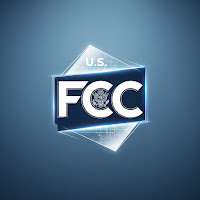WASHINGTON, D.C. – October 28, 2025 – The Federal Communications Commission (FCC) today voted to approve sweeping new rules aimed at bolstering the security of U.S. communications networks and closing key loopholes in the agency's Covered List. The action, according to the FCC, will help secure America's supply chain against devices that pose an unacceptable national security risk, particularly those tied to foreign adversaries like China.
The agency's primary goal is to prevent foreign adversaries from using these devices to surveil Americans, disrupt networks, and otherwise threaten U.S. national security.
Key New Safeguards Approved
The new rules clarify and strengthen existing prohibitions on covered equipment, specifically targeting two major areas where previous regulations fell short:
1. Banning Previously Authorized Devices
While the FCC's rules already prohibit the importation, sale, and marketing of new insecure devices from entities like Huawei and Hikvision , those rules did not apply to equipment that was previously authorized.
The new rules establish a process for the FCC to prohibit the continued importation, marketing, and sale of devices that were authorized before the agency placed them on the Covered List due to national security concerns. The FCC stated it will apply this new rule in a targeted manner.
2. Closing the Modular Transmitter Loophole
The Commission also voted to close the "modular transmitter loophole”. This prevents certain insecure modular transmitters—like those from Covered List entities such as Huawei and Hikvision—from being included as component parts within devices that are otherwise lawful or authorized.
Future Actions Under Consideration
In addition to the immediate rule changes, the Commission adopted a Further Notice of Proposed Rulemaking (FNPRM). This notice seeks public comment on various measures to further secure the supply chain and strengthen enforcement, including:
- Extending Prohibitions: Extending equipment authorization prohibitions to a larger class of foreign adversary-controlled devices and component parts produced by Covered List entities.
- Strengthening Enforcement: Various measures to strengthen enforcement against the unlawful marketing of covered equipment
REF:
News Release from the FCC
https://docs.fcc.gov/public/attachments/DOC-415131A1.pdf



